Are you a freelancer looking to navigate the tricky waters of contract negotiation? It's essential to communicate your terms clearly while ensuring a productive partnership with your clients. In this article, we'll explore tips and strategies to help you craft a compelling letter that lays the groundwork for a successful freelance contract. So, grab a cup of coffee and dive in to discover how to negotiate your way to a better deal!

Clear Scope of Work
A clearly defined scope of work (SOW) is crucial in freelance contract negotiations, as it outlines specific tasks and responsibilities. For instance, a graphic design project may involve creating five logo concepts, delivering them within three weeks, and providing two rounds of revisions based on client feedback. These parameters help manage expectations and ensure that both parties agree on the deliverables. In addition, timelines, payment structures, and methods of communication should be explicitly stated to prevent misunderstandings. Including key milestones, such as an initial project kickoff meeting on [insert date] and final review by [insert deadline], can further clarify progress and accountability for both the freelancer and the client.
Payment Terms
Freelance contracts play a crucial role in defining payment terms between clients and freelancers. Clear payment structures help avoid misunderstandings. Typical payment terms include rates such as hourly (e.g., $50/hr) or project-based fees (e.g., $1,000 for a web design). Defining payment schedules (e.g., upfront deposit of 30% and remaining 70% upon project completion) ensures cash flow throughout the project duration. Outlining methods of payment (e.g., PayPal, bank transfer) adds clarity. Additionally, including late payment penalties (e.g., 5% after 14 days) incentivizes timely transactions. It's essential to document all agreements to provide legal protection and build trust between parties involved. Clear, concise terms enhance professionalism and project efficacy.
Deadlines and Deliverables
Freelance contracts often outline critical elements such as deadlines and deliverables to ensure clarity and accountability. Specific timelines, such as project commencement on March 1, 2024, and final delivery on April 15, 2024, define expectations. Deliverables may include detailed reports, creative designs, or digital assets, with specifications like format (PDF, JPEG), size (A4, 300 DPI), and quantity (three initial concepts). Clarity in these aspects prevents misunderstandings and promotes a professional relationship. Regular check-ins, such as bi-weekly progress reviews, can further align expectations and foster collaboration throughout the project lifecycle.
Revisions and Modifications
Freelance contracts often require careful negotiation regarding revisions and modifications to ensure clarity and protection for both the freelancer and the client. When addressing revisions, it is essential to specify the number of allowed revisions per deliverable (such as three rounds for design work) and outline the process for requesting changes (e.g., written requests submitted within ten business days). Modification terms should clarify how additional fees are incurred for extra revisions or scope changes, specifying hourly rates or flat fees. Additionally, deadlines for each set of revisions should be established, allowing a timeline for the completion of work during the project phases, ideally aligning with overall project due dates to maintain workflow efficiency. Documenting these terms in clear language within the contract reduces misunderstandings and fosters a more productive working relationship.
Termination and Cancellation Policies
Termination and cancellation policies are crucial components of freelance contracts, providing clarity on how either party can end the agreement. Typically, a standard notice period is set, often ranging from 14 to 30 days, allowing both parties ample time to adjust to the change. Events leading to immediate termination might include non-payment, breach of contract, or failure to meet deadlines, ensuring accountability. The policy may also outline repercussions for premature cancellation, such as a percentage of the remaining balance owed or forfeiting paid fees for uncompleted work, providing financial protection. Additionally, methods of cancellation notification, which could involve written communication through email or certified mail, establish formal procedures, fostering professionalism in the freelance relationship. Clear guidelines on intellectual property rights post-termination ensure both parties understand usage rights of any work produced before the termination date, safeguarding creative outputs.
Letter Template For Freelance Contract Negotiation Samples
Letter template of freelance contract negotiation for social media managers
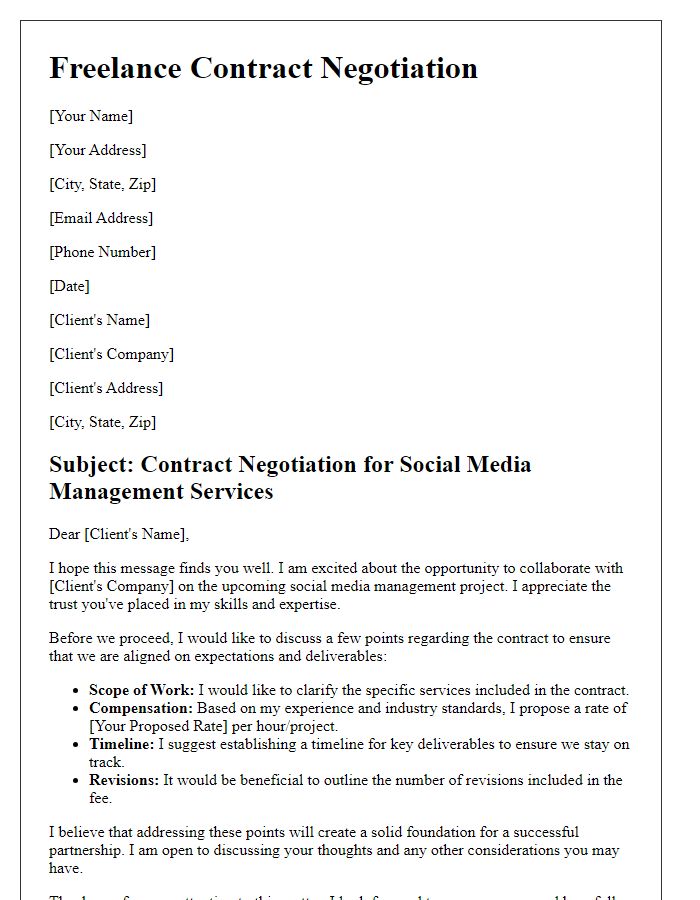
Letter template of freelance contract negotiation for virtual assistants
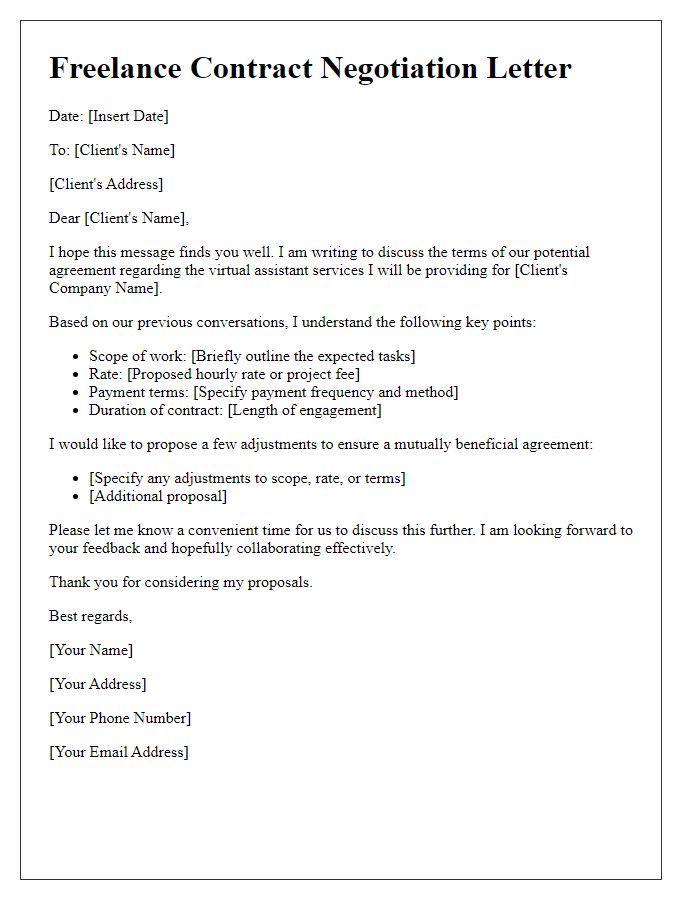

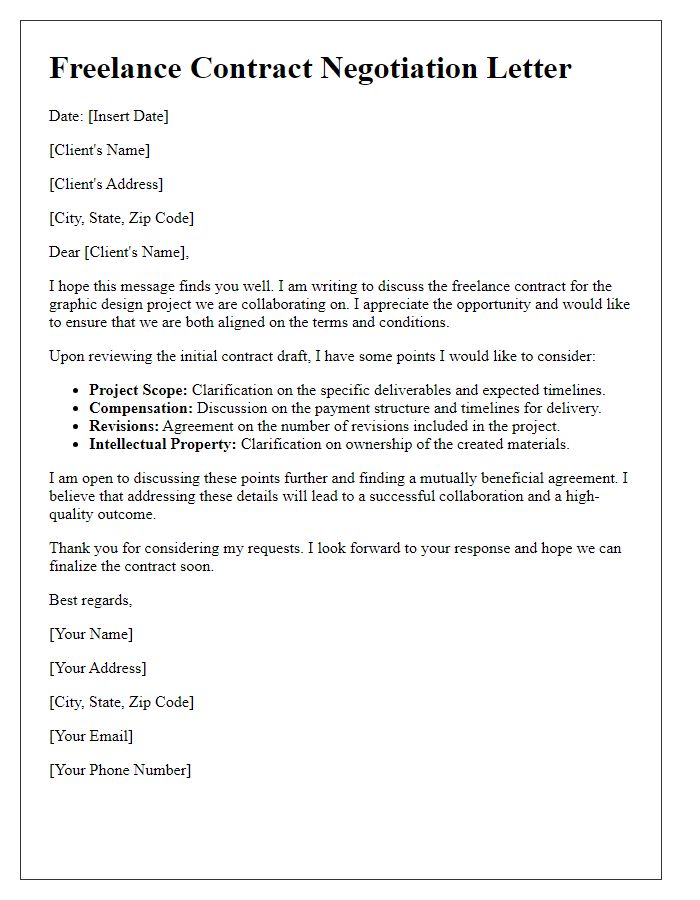
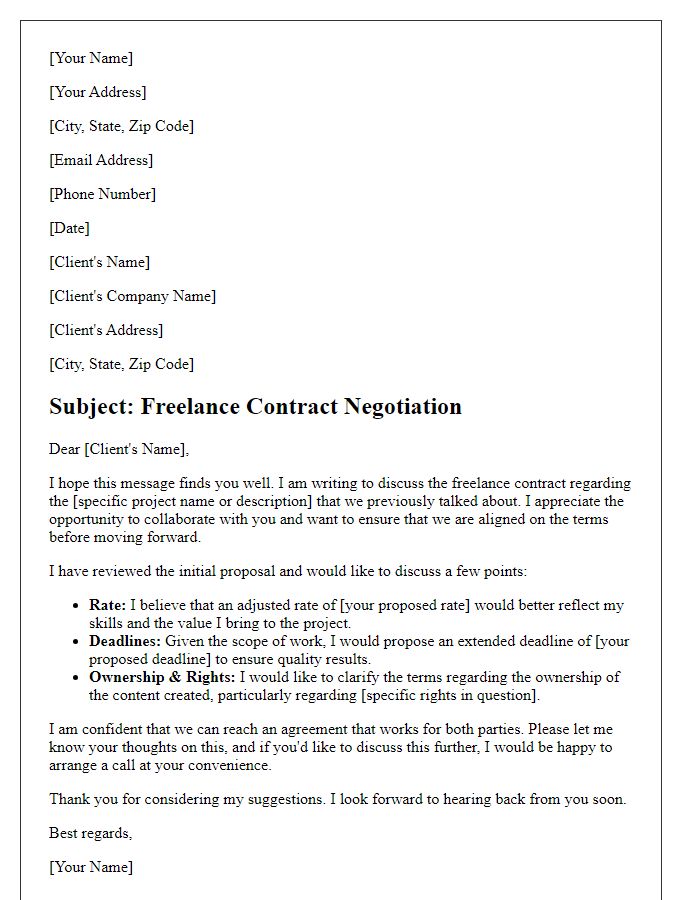
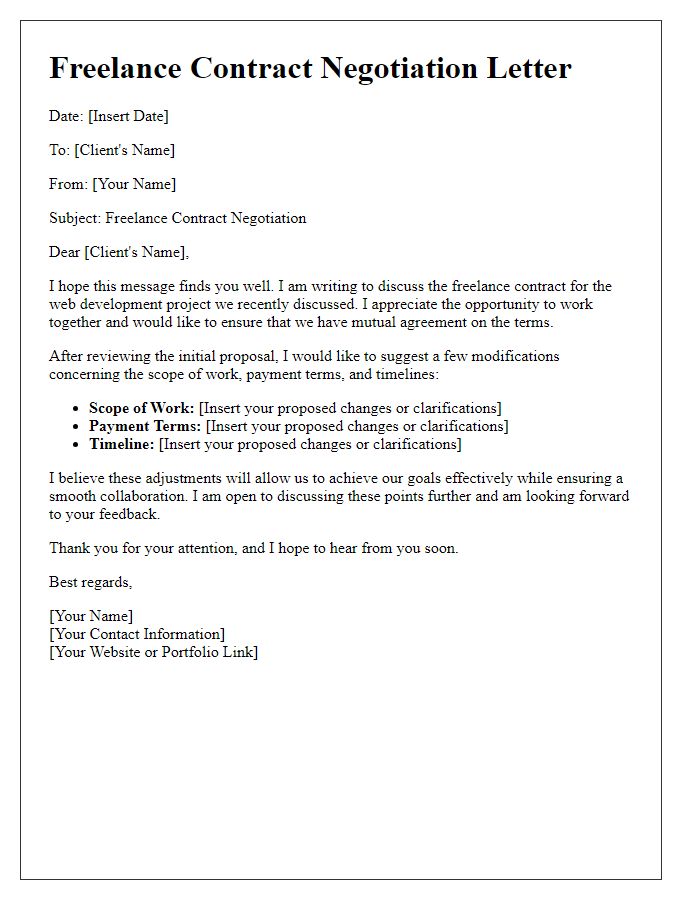
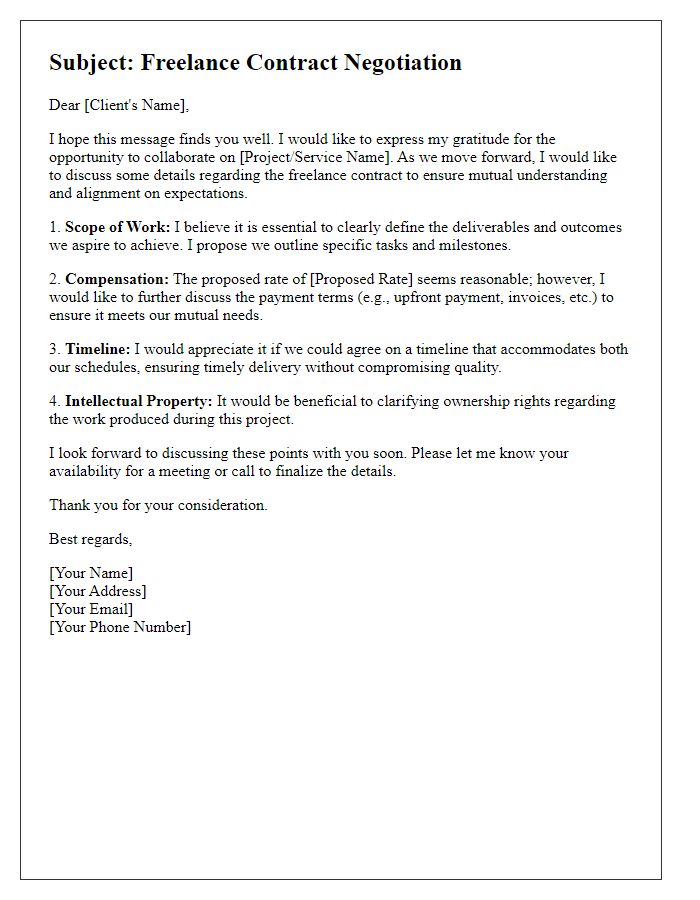
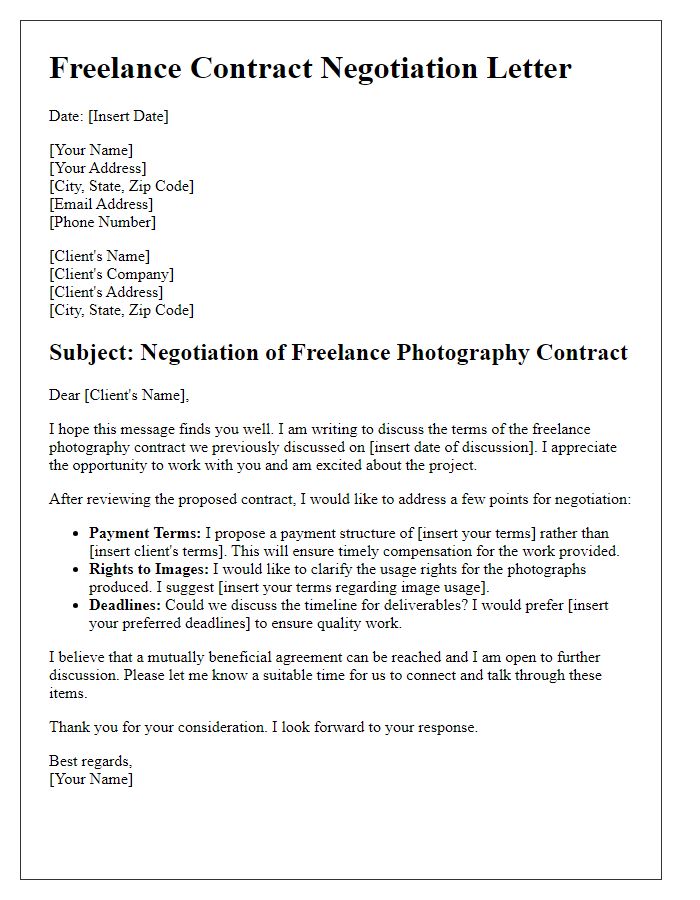
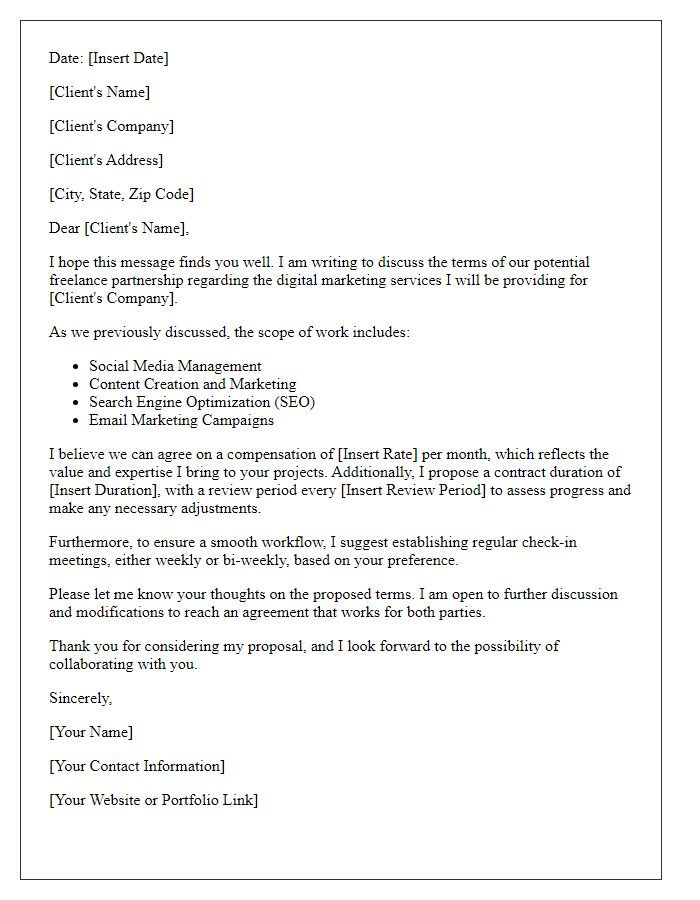
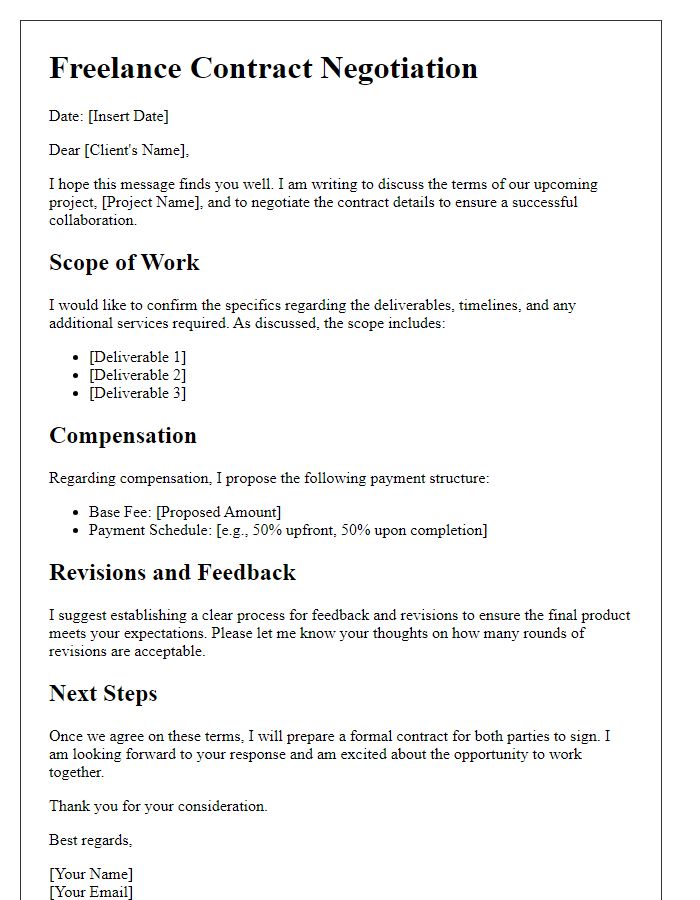
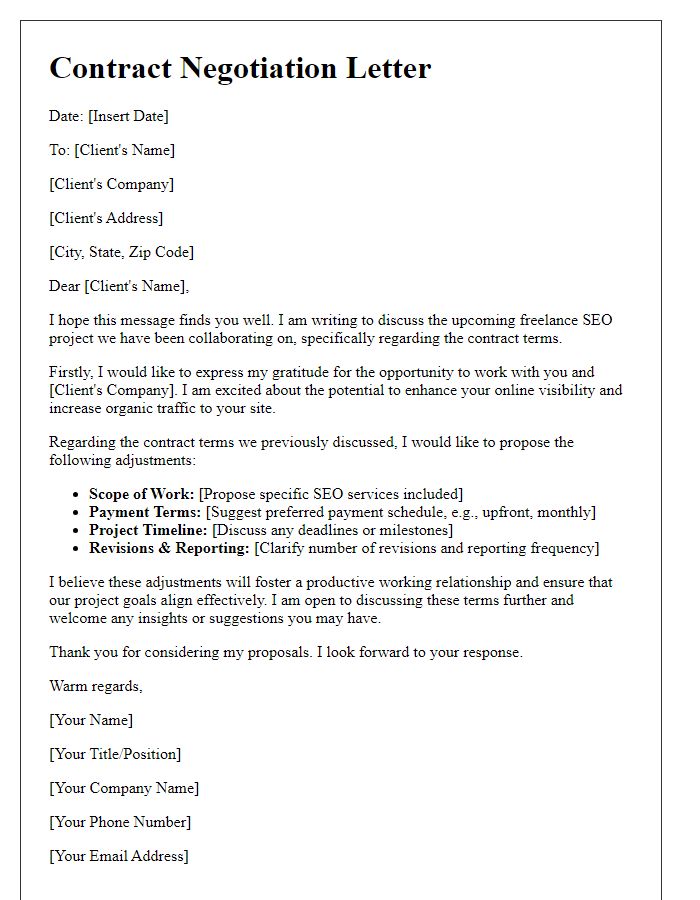


Comments